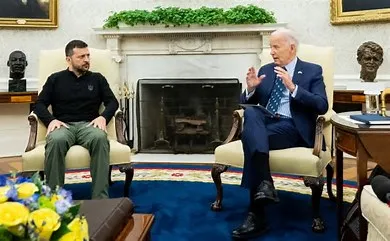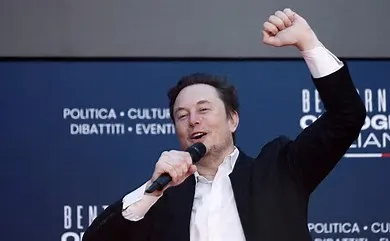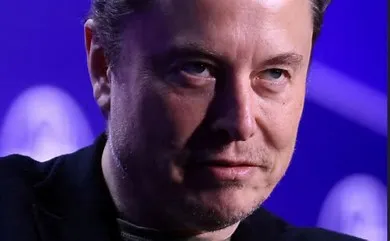It may take some time for India to become a world leader but at the G-20 Summit Bharat has already proved that it has truly become a global thought leader.
In a world where there is a struggle for and use of power among nations Prime Minister Modi has reminded the world about the ancient Indian philosophy of ‘One Earth, One Family & One Future’ (Vasudhaiv Kudambakam). The concept India has always promoted.
This as an idea holds the wisdom of ancient Indian civilization, making India a more convincing nation to lead the idea. It charts the future path for nations in the ever-changing and dynamic nature of the world.
Thirty-eight years ago, pop music King Michael Jackson and noted singer Lionel Richie along with Quincy Jones had produced a song called – ‘We are the World,’ it was a best-selling charity song of all times… following were the lyrics…
There comes a time
When we heed a certain call
When the world must come together as one
There are people dying
Oh, and it’s time to lend a hand to life
The greatest gift of all
The song was produced for the charity of devastating famine in Ethiopia, an east African country. And had attracted the attention to the plight of African countries.
It was perhaps for the first time that a collective consciousness of world’s leading artists moved and they thought of doing some public good for a famine, which happened in an alien country. But the world failed to take the cue. During Covid 19 pandemic we have seen that the existing world bodies were ineffective in bringing the world together for the common good.
Going back to the song sadly, the idea- ‘We are the world’ of the 1985 song album of American pop artists was held in abeyance. Though it was propagated by world’s most popular singers of that time, it was not given the due attention.
Thirty-eight years later at the G-20 Summit, Bharat has etched its name in the history for inclusivity. It has not just lobbied but also made it possible for African Union to become a member of G-20.
With the entry of African Union G-20 has now become G-21 and conscious of the concerns of more than 1.4 billion people with an economy of more than $3 trillion. It is a significant milestone in history where Bharat has been the leader.
Under the vision of Mahatma Gandhi India as a country has stood up against apartheid in the Africa even before it got its independence. The country has again risen to the occasion and the gavel of India’s G-20 Presidency has brought in African Union into the fold.
Until this happened G-20 was largely dominated by countries, which colonized the world, now it has representation from those countries which were colonized as well. If we look back into the history of the post-modern world of materialism, the Western countries were busy with their own vested interests. They did not pay much attention to the wisdom of noble ideas such as Vasudhaiv Kudambakam. But today the world has realized that if the prevailing trust deficit in the world has to be removed, then this idea is the key.
At the Summit Prime Minister Modi reminded the world that the trust deficit which creeped in the world during Covid-19 pandemic and exacerbated with the Russia-Ukraine war. This feeling of doubt can only go away only when the world adopts collective values of peace and empathy.
In the backdrop of ‘Vasudhaiv Kudambakam, American philosopher Ken Welber’ Integral Theory also becomes relevant. Ken is inspired by the Indian values and the ideas of the East.
He states there is a need to create a synthesis of the wisdoms and insights already available to humanity in a coherent way that can provide a practical map for navigating our future.
His works include synthesis of both Eastern and Western world, from science and religion, and from the perspectives of pre-modern, modern and post-modern world.
Ken believes that nothing is hundred per cent right or wrong, they merely vary in their degree of incompleteness and dysfunction. No one or nothing is 100 per cent good or evil, they vary in their degree of ignorance and disconnection. All knowledge is work in
progress.
Leaps in evolution usually occur in a manner of ‘transcending and including,’ not by wiping out what came before. He asserts that the rational thought did not eliminate emotion but included it into a greater developmental level of consciousness.
Industrial societies did not wipe out agriculture but transcended agriculture into greater levels of efficiency and prosperity. If we are going to truly evolve, we do so by including and integrating what came before into something greater, not wiping it out.
The first Prime Minister of India, Jawahar Lal Nehru understood that after the Independence, the country needed a balanced approach for development and not the one which priorities materialism, a system which has led to spiritual bankruptcy and has become a cause of all environmental and manmade disasters. That is why Prime Minister Modi reminded the world about what the priorities should be. That the GDP cannot be the true indicator of happiness, the need of the hour is a human-centric approach, for which India has always stood for.
Objectively seeing national interest and security are the goal that each country strives to achieve by the use of national power over other countries. Every country looks to safeguard its own interests.
The G-20 is primarily an economic summit, but in such a submit when India highlights the concept of Vasudhaiv Kudambakam, it shows its commitment towards peace and prosperity of the entire world.
Atir Khan is a Delhi-based senior journalist

















